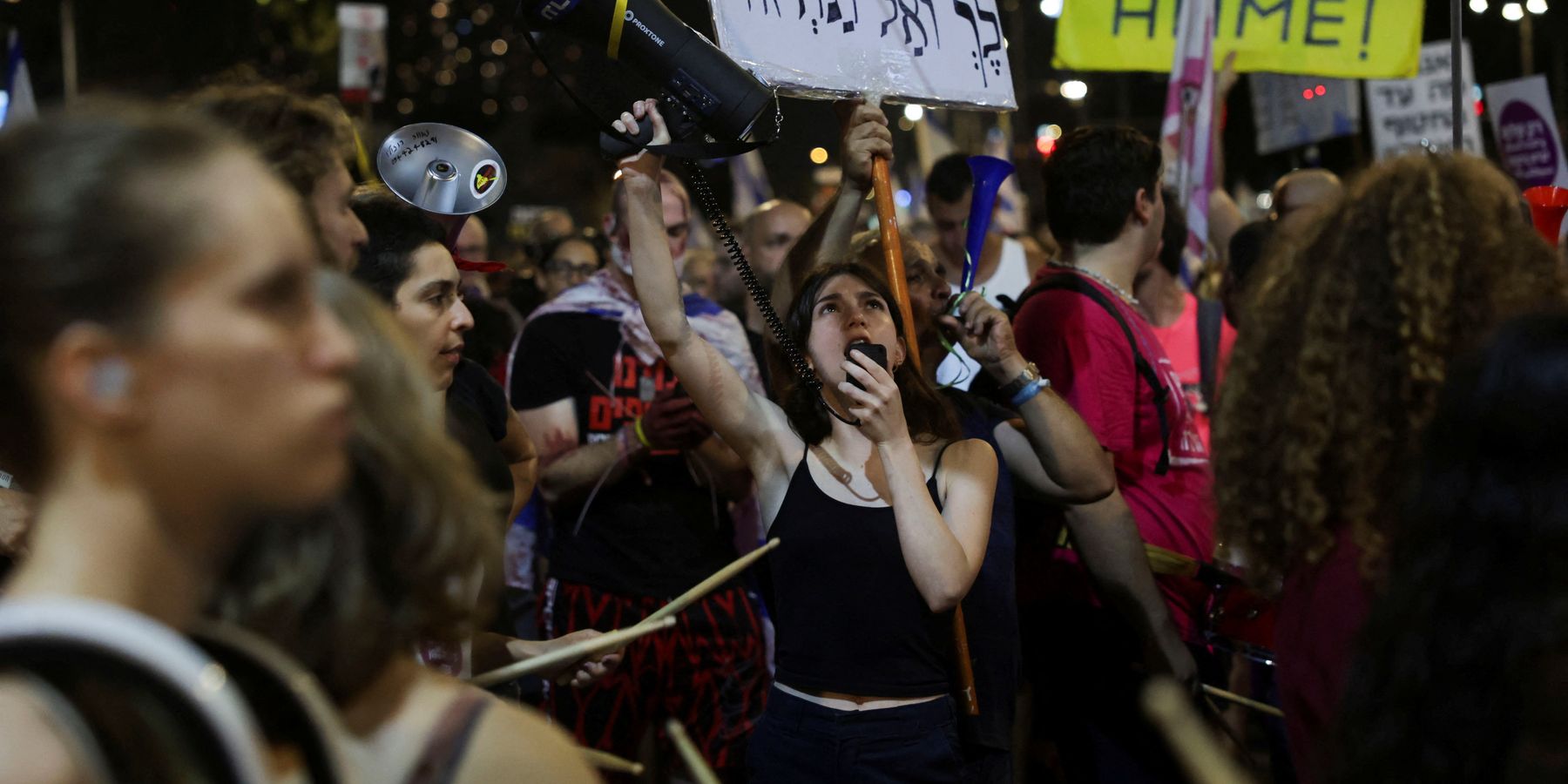As Israel waits for Iran and Hezbollah to retaliate after it assassinated Hamas’ political chief in Tehran, and the U.S. presidential race dominates domestic attention spans, a crucial issue risks fading from view: American hostages are still held by Hamas in Gaza.
Just yesterday, Hamas’ military wing claimed that an Israeli hostage was killed and two others injured in an Israeli airstrike.
While the U.S. has shown its resolve in securing the release of Americans unjustly detained abroad — most recently in high-profile prisoner swaps with Russia — six Americans remain captive in Gaza. The Biden administration is making a final push to prevent regional war and secure the release of hostages, while Hamas refuses to attend talks and Prime Minister Benjamin Netanyahu’s government is more intransigent than ever.
However, it’s Netanyahu’s government that Washington has the most leverage over, making it critical for President Biden to prioritize the hostage issue.
A White House readout of President Biden’s call with Netanyahu two weeks ago mentioned support for Israel against threats from Hamas, Hezbollah, and Iran but made no mention of the hostages. While readouts are often vague and hostage negotiations typically occur behind the scenes — and there can be reasons to keep them out of the spotlight — one cannot help but wonder if the hostages’ fate has become an afterthought in Washington.
It is certainly an afterthought for Netanyahu, who has shown little concern for the hostages, whether they are Israeli or from the other two dozen nations where Hamas’ captives hail from.
On October 7, Hamas took 10 Americans hostage. Three of them — Itay Chen, Gadi Haggai, and Judith Weinstein Haggai — were killed that same day.
Two others, a mother and daughter from Illinois, Judith and Natalie Raanan, were visiting family in Israel when they were abducted by Hamas. They were later released after negotiations between the U.S., Israel, Qatar, and Hamas. During this early phase of the war, before most of Gaza was destroyed and before the death toll soared to nearly 40,000, there was hope that this release would be the start of more diplomacy and possibly a ceasefire. That didn’t happen.
It is believed that six U.S. hostages remain in Gaza. Israel also has a responsibility to these hostages, who either lived in Israel or held dual Israeli citizenship. However, an American is an American, regardless of their second passport or where they choose to live. These hostages have been abandoned by two countries at once.
In November, President Biden vowed, “I will not stop until they are all released.” In December, after learning of Gad Haggai’s death and again on the 100th day of captivity in mid-January, he renewed this pledge. During the State of the Union in March, he promised the hostages’ families, “We will not rest until we bring their loved ones home.”
In May, Biden proposed a three-phase ceasefire plan, with the release of hostages as a key part of the first phase lasting six weeks, stating, “There are American hostages who would be released at this stage, and we want them home.”
Over 10 weeks have passed since that proposal, and Israel is further from a ceasefire than ever. Netanyahu has repeatedly ignored U.S. red lines, rejected calls for less deadly “surgical operations,” and resisted allowing aid into Gaza or pursuing a ceasefire in good faith. He and his far right-wing cabinet members remain committed to “total victory” against Hamas, which even his own military deems unrealistic.
The recent Israeli assassination of Hamas political chief Ismail Haniyeh in Iran has made diplomacy between Israel and Hamas even more distant. Achieving a ceasefire in Gaza remains the best chance to begin bringing all the hostages, including Americans, home. But Netanyahu has shown little interest in ending the war, and the release of the hostages is clearly not a priority for him. In fact, he may view it as counterproductive, as it could undermine his goal of prolonging the war.
Hamas and its supporters also have agency. They chose to take hostages and commit murder, which ignited the conflict, and they hold the power to release the hostages. However, they are unlikely to do so without receiving something substantial in return. Securing the release of U.S. hostages is always a fraught task. Russia detained journalists, a world-class athlete, and private citizens, demanding the release of arms dealers, fraudsters, and assassins in exchange.
Despite this stark moral disparity, it is the president’s duty to ensure that Americans held hostage are brought home. In the case of Gaza, a ceasefire — a step toward peace — would not only secure the hostages’ release but also save many more Palestinian and Israeli lives.
President Biden must recognize that the current strategy toward Netanyahu’s government is failing. He should hold Netanyahu accountable for jeopardizing the stability of the region and U.S. citizens’ lives. With his remaining months in office, Biden should press the Israeli government to negotiate a ceasefire and initiate, if not already in place, direct negotiations with Hamas to secure the release of American hostages. They have been held long enough.
- Families of American-Israeli hostages blast Netanyahu ›
- American guns are going to Gaza | Responsible Statecraft ›
















